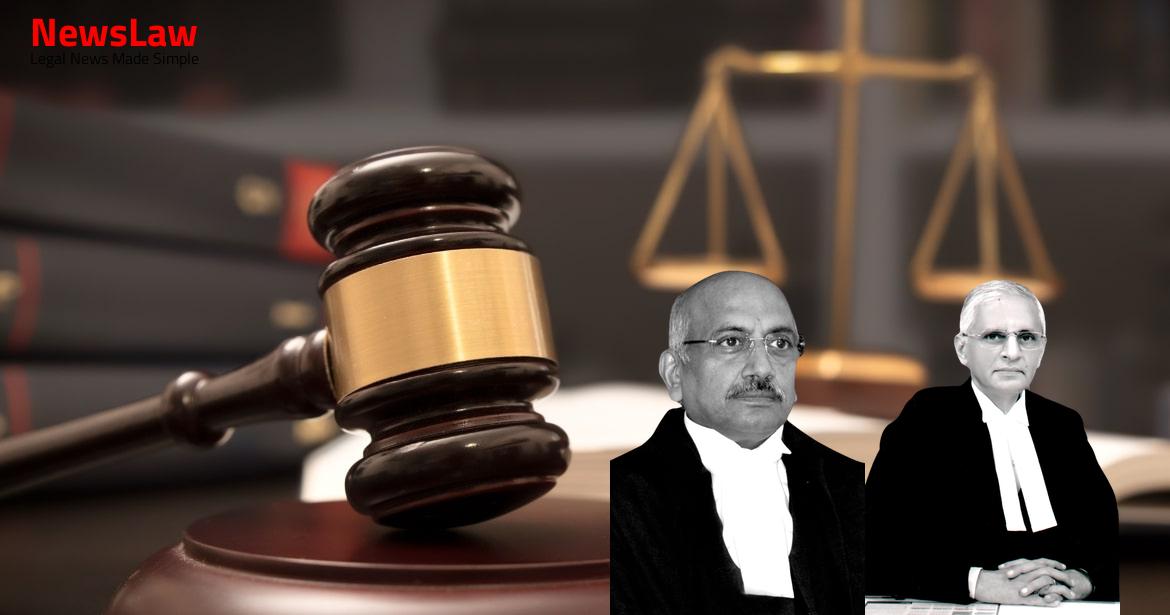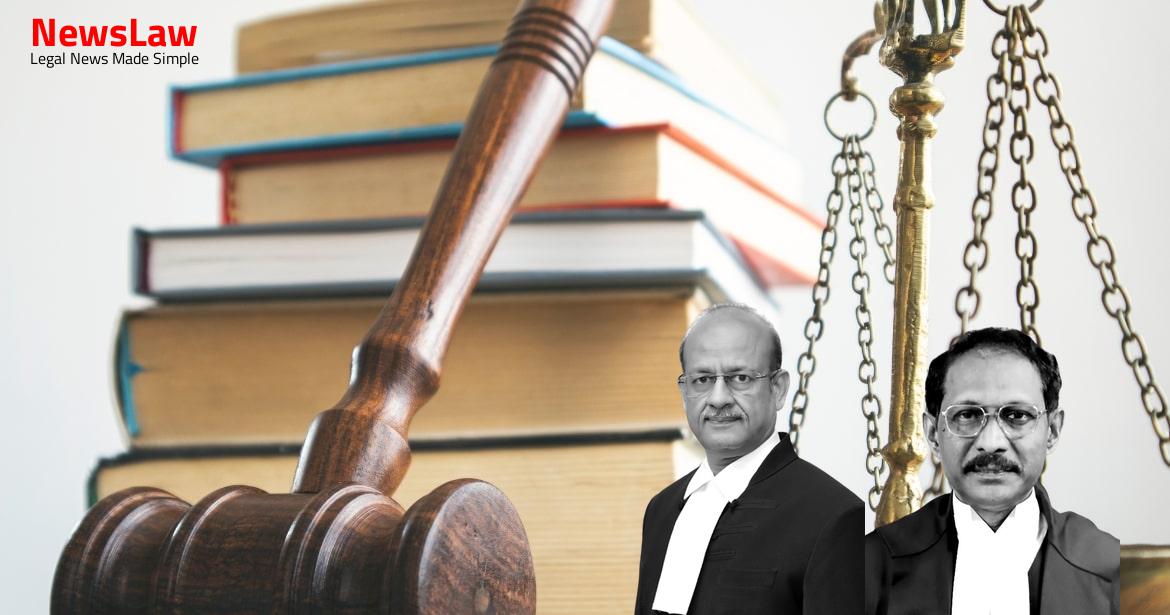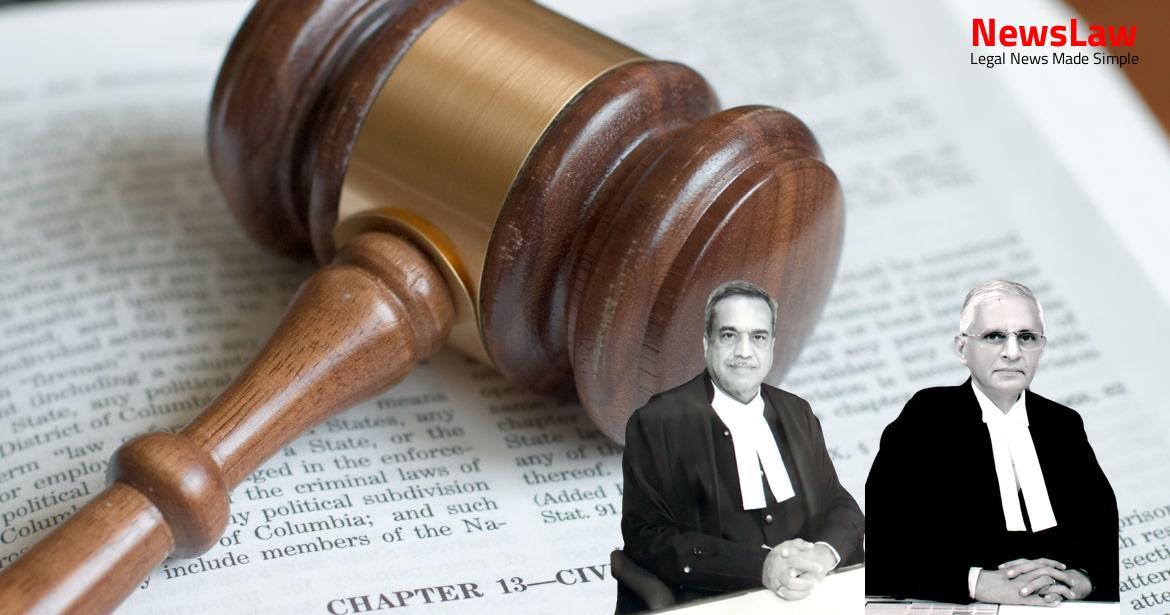The recent legal case delves into the intricate analysis of Wakf property jurisdiction by the courts. The focus is on the interpretation and application of the law in determining the status of disputed properties. The court’s approach to resolving property disputes under the Wakf Act is scrutinized, shedding light on the boundaries of jurisdiction in such matters.
Facts
- Appellant No.2 issued a legal notice to terminate the respondent’s tenancy due to non-payment of rent and encroachment on a graveyard site.
- Respondent made partial rent payments and disputed the claims made by the appellants.
- Appellant No.2, as the successor Mutawalli, took over the management of the Wakf institution after his father’s passing.
- The appellants filed a suit for eviction of the respondent from the property before the Wakf Tribunal in Hyderabad.
- Evidence was tendered by both parties regarding the ownership and extent of the Wakf institution property.
- The respondent denied the property being Wakf-owned and claimed his father had rented it.
- The appellant’s case was based on documents showing the registered Wakf institution near Tek Masjid.
- The respondent had taken over the tenancy from his father and paid rent to the Wakf Board.
- A suit was filed by the appellants due to non-payment of rent and the encroachment on the graveyard site by the respondent.
- The Wakf tribunal decreed the suit in favor of the appellants, declaring the suit schedule properties as belonging to the Wakf institution.
- The High Court set aside the Wakf tribunal’s judgment based on the case of Ramesh Gobindram vs Sugra Humayun Mirza Wakf.
- The High Court allowed the parties to seek legal remedies as per the law.
- The appellants are aggrieved by the High Court’s judgment and have appealed to this Court.
- Arguments have been heard from both sides represented by their respective counsels.
Also Read: Critical Analysis of Circumstantial Evidence in Arson Case
Issue
- The Wakf tribunal framed two issues for consideration.
- The first issue is whether the plaintiff is entitled to arrears of rent and mesne profits as prayed for.
- The second issue is whether the plaintiff is entitled to evict the defendant as prayed for.
Also Read: Analysis of Commencement Date in Gratuity Act Amendment Case
Arguments
- Different decisions of the Supreme Court were discussed regarding the jurisdiction of the Wakf tribunal in cases where the property status as Wakf is disputed by the defendant or where an eviction of a tenant is sought.
- The case of Faseela M. vs Munnerul Islam Madrasa Committee was referred where it was held that if the property status is disputed and eviction of a tenant is sought, the suit must be filed before the civil court, not the Wakf tribunal.
- Contrary decisions in the cases of Board of Wakf, West Bengal vs Anis Fatma Begum, and Haryana Wakf Board vs Mahesh Kumar were mentioned, where the exclusive determination of a property being Wakf or not was considered under the Wakf Act by the Wakf tribunal.
- The case of Punjab Wakf Board vs Sham Singh Harike was cited to emphasize that the question of jurisdiction of civil courts in Wakf matters depends on whether the issue raised falls under the Wakf Act provisions for determination by the tribunal.
- The case of Kiran Devi involved a similar issue where the Wakf Board contended that the matter should be decided by the Wakf tribunal, leading to a transfer of the case from the civil court to the tribunal.
- Appellants issued a notice terminating tenancy of suit ‘A’ schedule property on 23.05.2006.
- Respondent appeared, filed written statement, and denied property being Wakf property in a reply notice dated 12.06.2006.
- Defendant contested that suit property is not Wakf property based on documents annexed and averments in the plaint.
- Respondent disputed property being Wakf property, indicating the case cannot be deemed as an admitted Wakf property scenario.
Also Read: Interpretation of Will and Hindu Succession Act: Legal Analysis
Analysis
- The High Court reevaluated the evidence, which is not permissible in an appeal.
- The dispute revolves around the extent of the property as per the gazette notification.
- The respondent questions the extent mentioned in the gazette notification, leading to a discrepancy.
- The tribunal’s finding was based on evidence, including rectification of Wakf property extent and previous litigation.
- The High Court’s interference with the tribunal’s factual findings was unwarranted.
- The High Court suggested following legal procedures to challenge gazette notification content.
- The legal remedy was not availed by the respondent as per Section 6 timing.
- The tribunal’s jurisdiction was to decide disputes under Sections 6 and 7 of the Wakf Act.
- The High Court questioned the increase in property extent without substantial evidence.
- The suit was maintained before the Wakf tribunal based on the judgment’s observations.
- The scope of jurisdiction under Section 83 of the Wakf Act was addressed in the case of Kiran Devi versus Bihar State Sunni Wakf Board and Others 2021 SCC Online SC 280.
- The judgment was authored by Justice Hemant Gupta.
- The key takeaway from this judgment is the clarification of the scope of jurisdiction to be exercised under Section 83 of the Wakf Act.
- The High Court did not follow the limited scope norm in a Revision Petition.
- High Court’s conclusion that the suit was not maintainable before the tribunal is unjustified.
- The order dated 02.06.2014 by the High Court is unsustainable.
- The tribunal’s decision declaring the property as Wakf property in O.S. No 126/2006 was justified and within its jurisdiction.
- The evidence on record was correctly analyzed by the Wakf tribunal to reach the appropriate conclusion.
Decision
- The order dated 02.06.2014 passed by the High Court of Judicature at Hyderabad in Civil Revision Petition No.1331/2013 is set aside.
- The judgment dated 12.10.2012 passed by the Andhra Pradesh State Wakf Tribunal Hyderabad in O.S. No. 126/2006 is restored.
- The respondent is granted three months’ time to vacate and handover vacant possession of the suit schedule ‘A’ and ‘B’ properties subject to payment of rent, including arrears.
- The appeal is accordingly allowed with no order as to costs.
- Pending application, if any, shall stand disposed of.
Case Title: TELANGANA STATE WAQF BOARD Vs. MOHAMED MUZAFAR (2021 INSC 375)
Case Number: C.A. No.-004522-004522 / 2021



